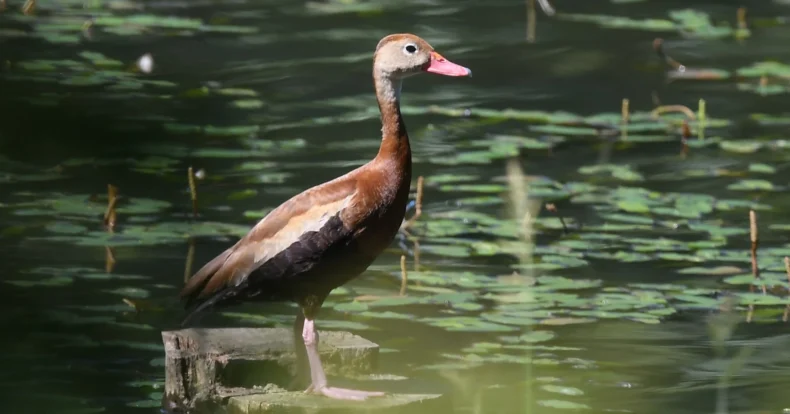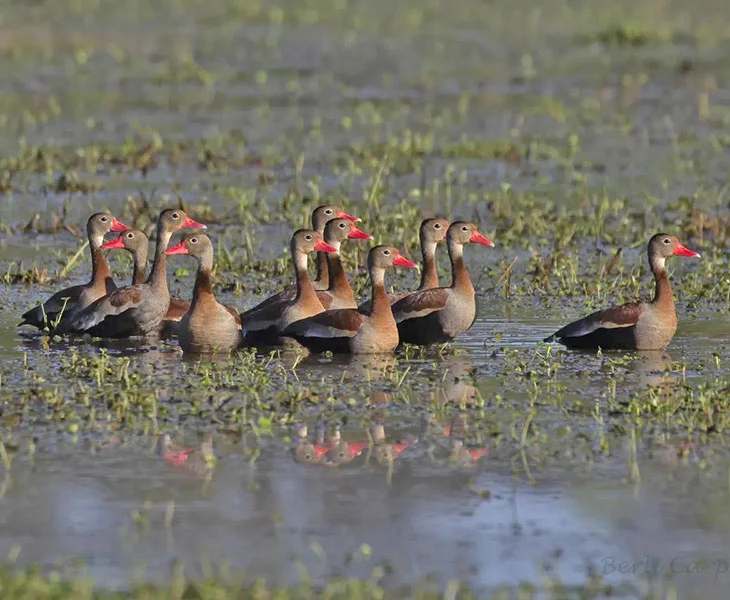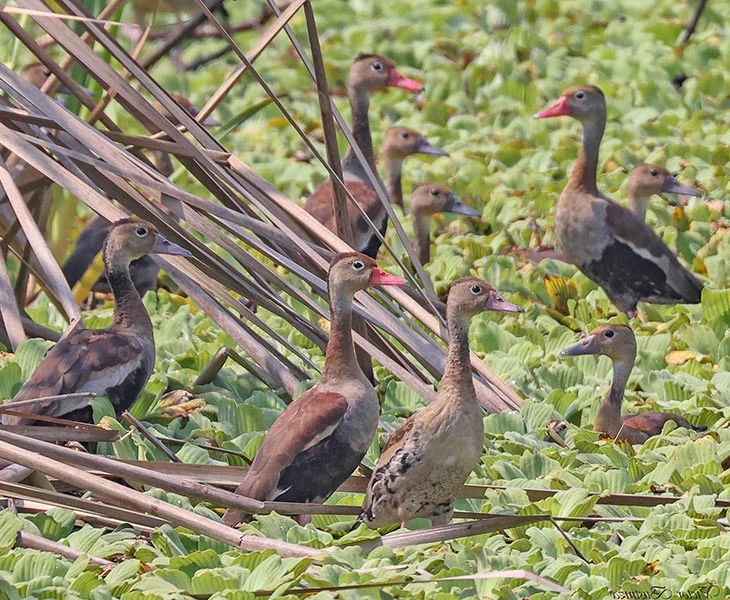The black-bellied pijije: a noisy and gregarious species of Costa Rica

The black-bellied pijije, known scientifically as Dendrocygna autumnalis, is a species of noisy, gregarious duck often found in Costa Rica. In Costa Rican Spanish, it is called “piche” or “pijije”, and is famous for its conspicuous presence in both agricultural fields and wetlands. This duck is distinguished by its long neck, slender legs and brown, black and white plumage. Its striking pinkish-orange bill makes it unmistakable in its environment.
Distribution and habitat in Costa Rica


In Costa Rica, the black-bellied pijije is a common species in the lowlands of the country, especially in areas such as the Tempisque basin and the Río Frío region. These areas offer the ideal habitats that this species prefers: freshwater marshes, wet grasslands, shallow lagoons and ponds. In addition, these ducks tend to look for places with trees nearby, as they often perch and nest among the branches.
Behavior and nutrition
One of the most characteristic aspects of the black-bellied godwit is its noisy behavior. When they flock together in large numbers, as is often the case, they produce a racket when flying as a group. Their vocalization has been phonetically transcribed as ‘wi-CHEE-chi-chee!’ or ‘pipi-CHEE-chee!’, and it is common to hear them as they fly over areas in the evening hours.
Although they are mostly herbivores, feeding on seeds, leaves and shoots of wetland vegetation, they also include some mollusks and insects in their diet. This preference for plant foods can cause conflicts with farmers, as large flocks of pijijes can descend on rice fields and cause significant damage, especially when rice is in the sprouting stage.
The black-bellied pijije: A common but fascinating species
Both male and female black-bellied godwits play an active role in the incubation and rearing of ducklings. They form long-lasting monogamous bonds and share the task of caring for their young. It is not uncommon to see pairs with more than 20 ducklings following the adults, making this species easily recognizable during the breeding season.
The Black-bellied Booby is a species frequently found in the rural landscapes of Costa Rica. It is common to see them flying in large groups at dusk, or to discover their flocks in wetlands and plantations. Their presence is unmistakable and, although they can often be a nuisance to farmers, their social behavior and physical characteristics make them one of the most fascinating bird species in the country.
Sensorial Sunsets
Navigate articles





